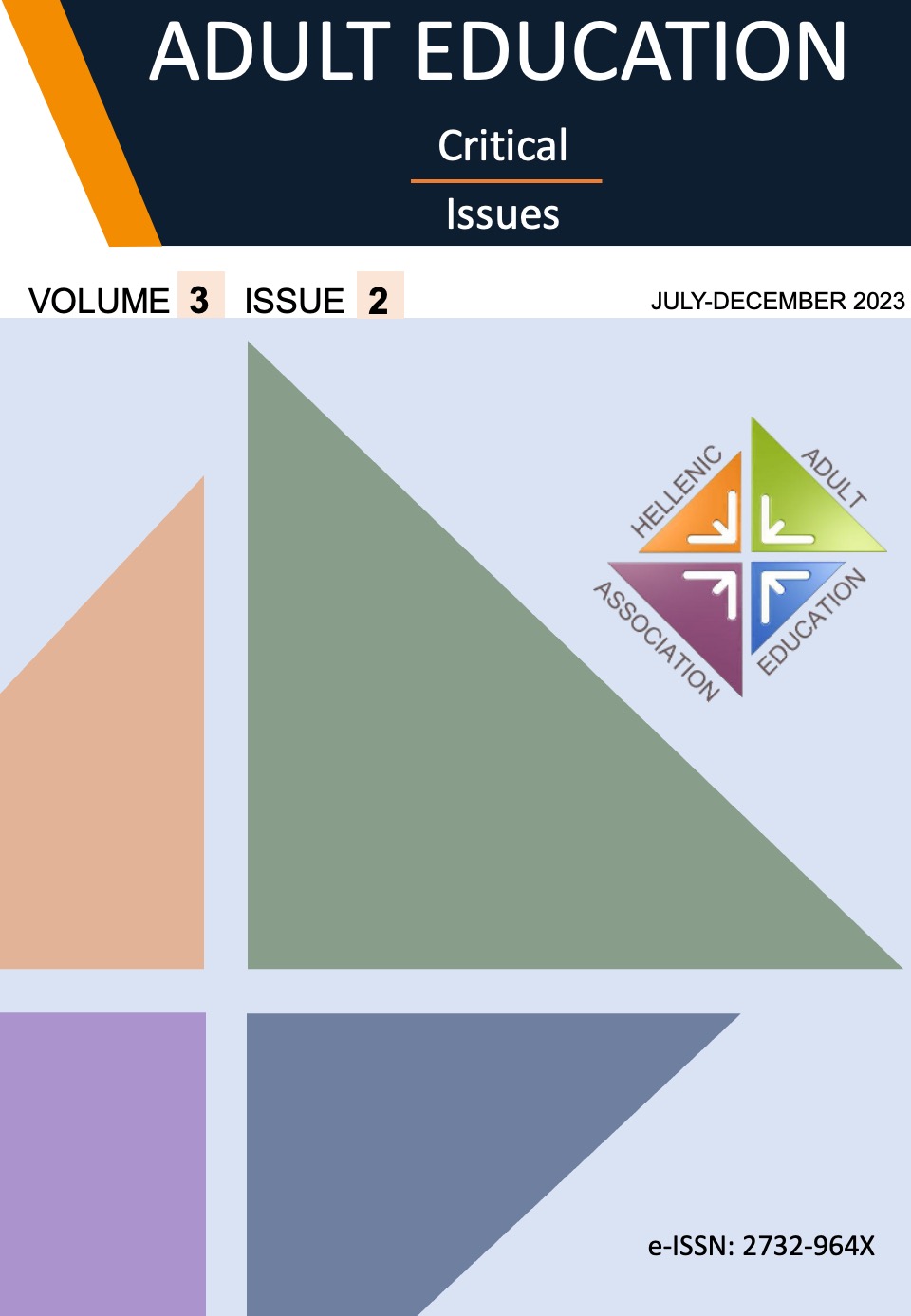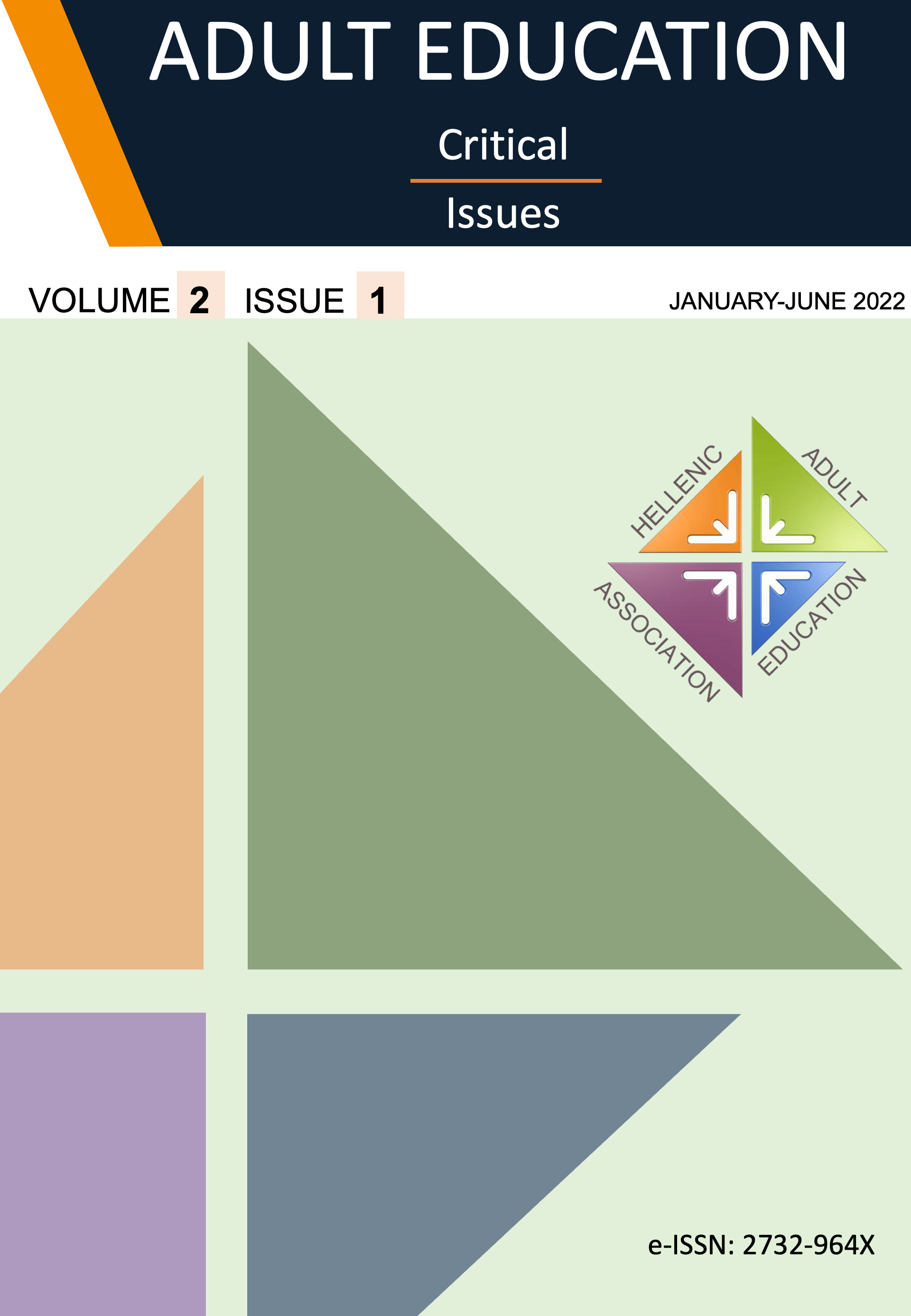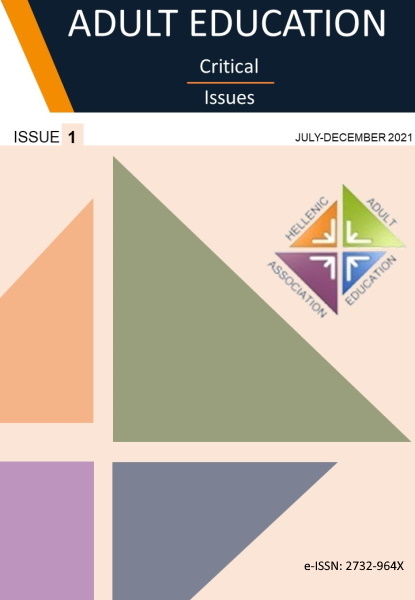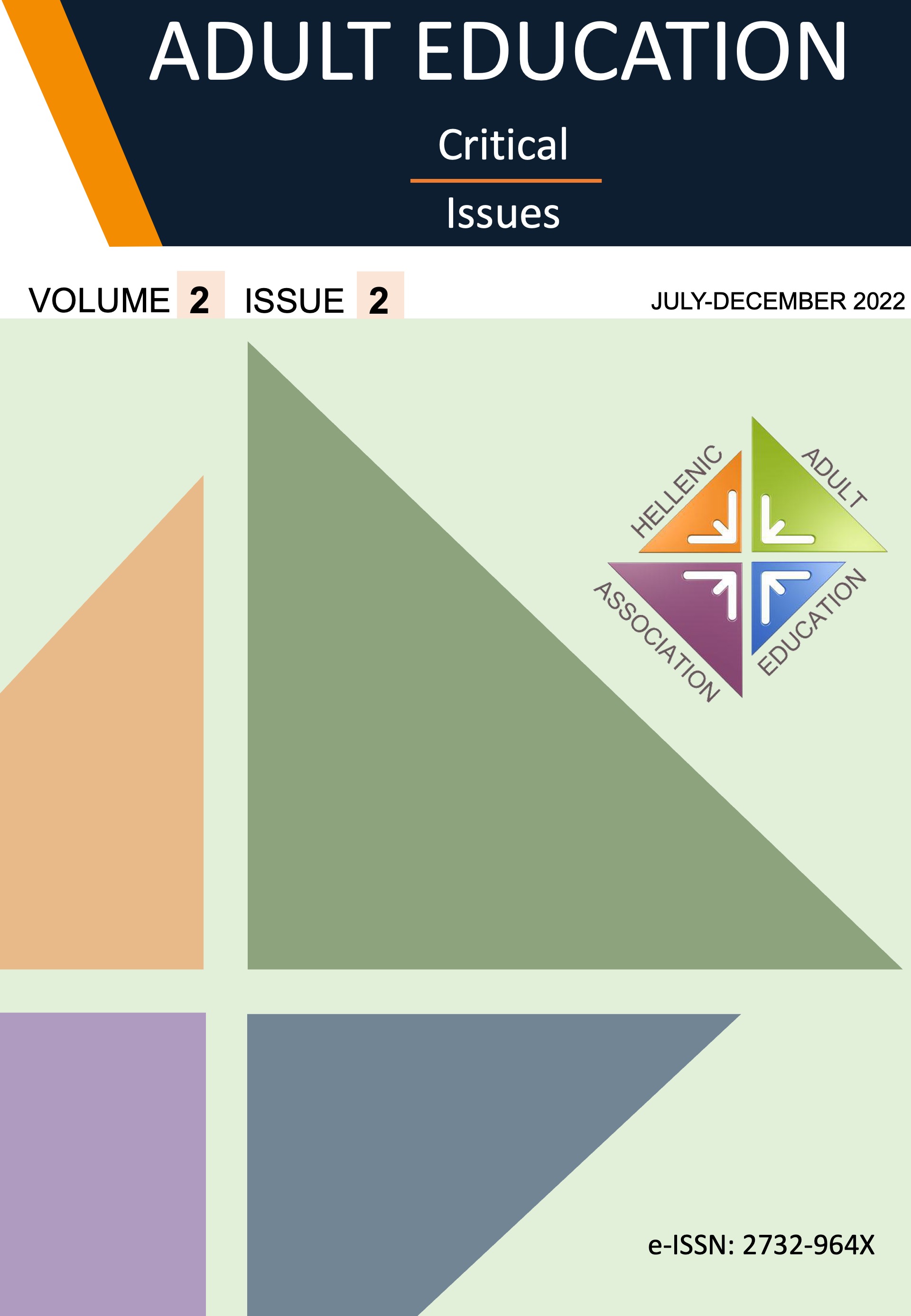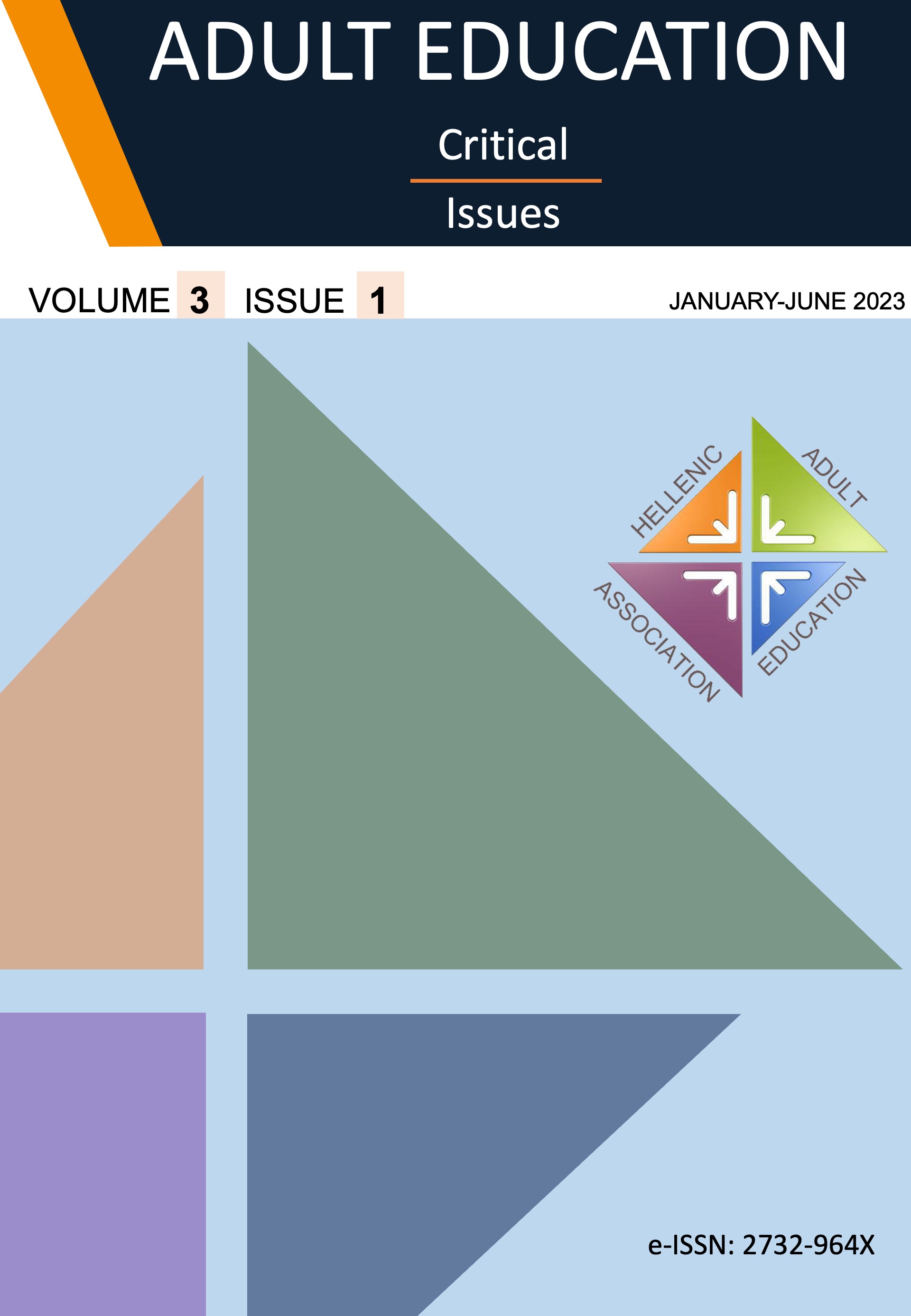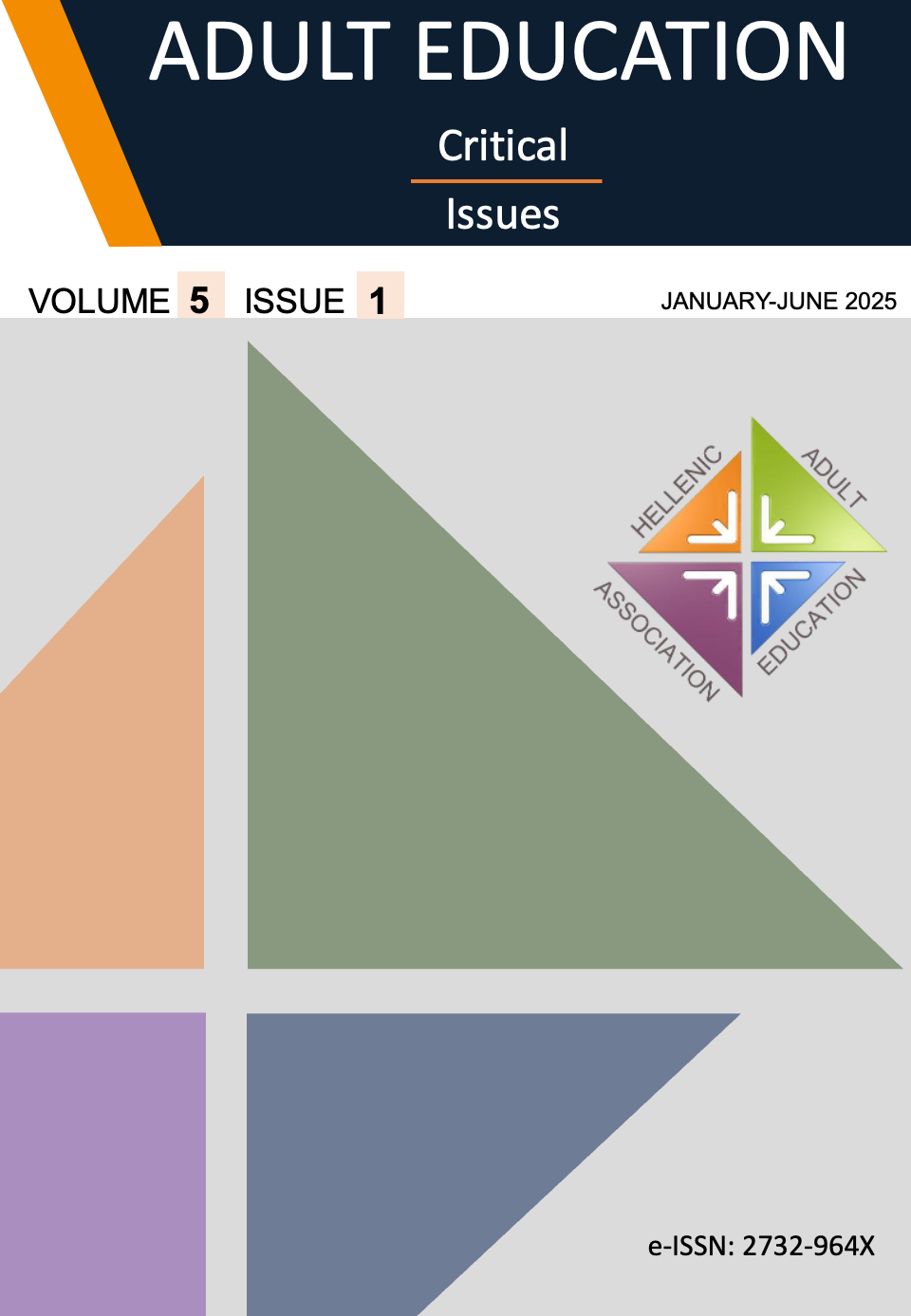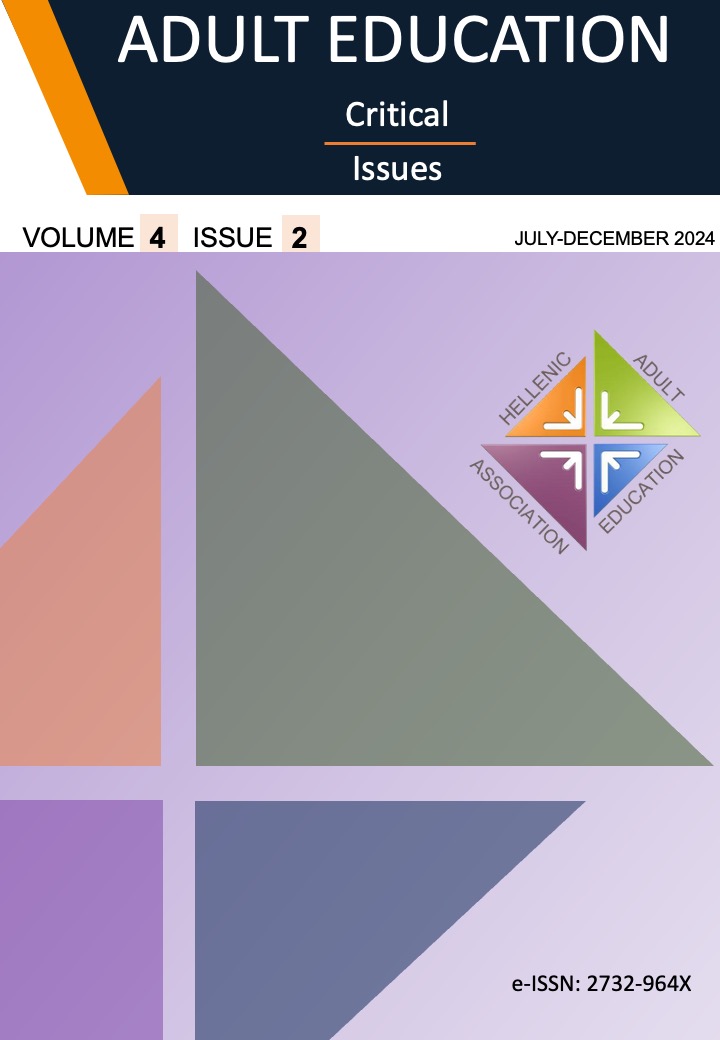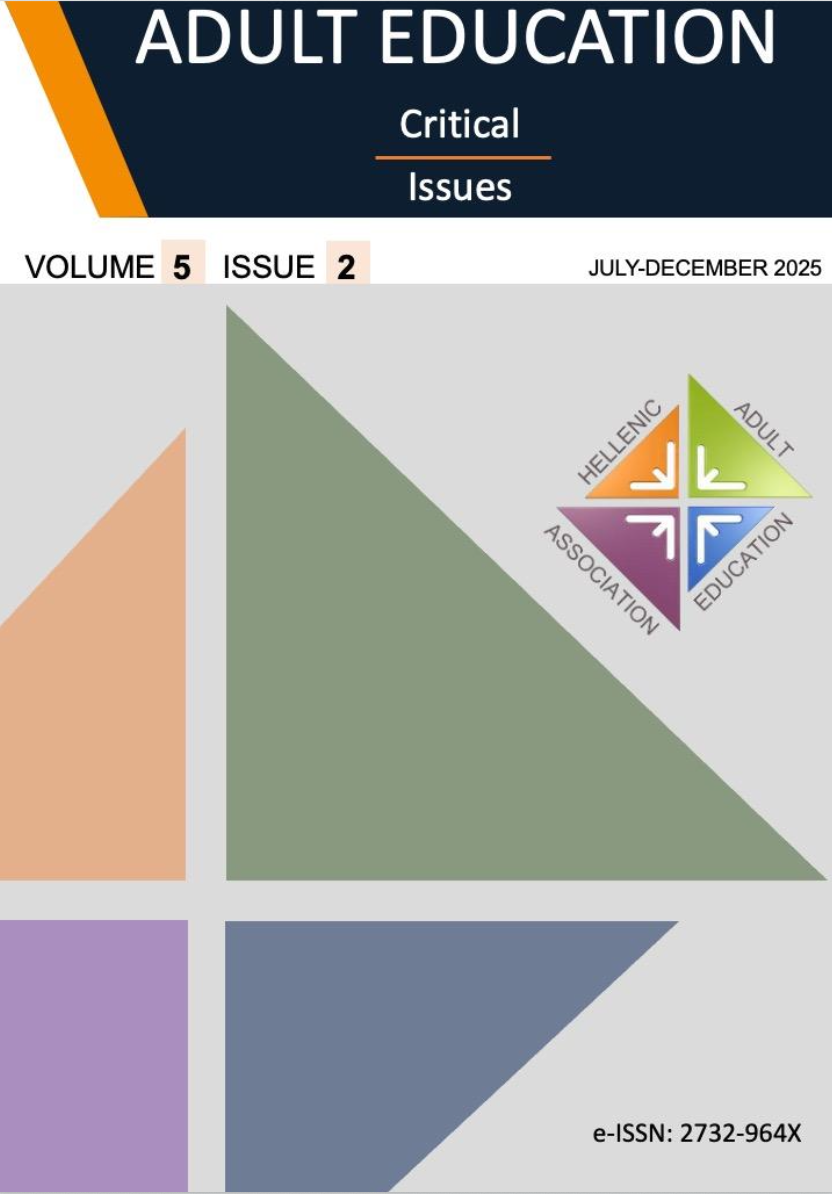What was ultimately J. Mezirow's perception of the role of emotions in Transformation Theory?
Abstract
This article attempts to contribute -with bibliographic data- to the constructive dialogue that continues to evolve around the emotional dimension of learning, within the framework of Transformation Theory (TT). It presents the findings of a literature review - as part of a doctoral thesis - regarding the significance that Mezirow himself attaches to the role of emotion in a transformative process. The research was conducted using the content analysis technique of primary sources, namely the texts of J. Mezirow.
The research findings indicated that Mezirow linked emotion to the key elements of his framework: the object of transformation, the means, the phases of the process, the taking of action and the role of the adult educator. These constitute the "strong" points of the emotional dimension of his theory. On the other hand, points were identified that Mezirow chose to touch upon only superficially or not to analyze further, such as a more detailed examination of the relationship between the emotion of critical reflection in each phase of the process, the recognition and utilization of positive emotions, and proposals for specific techniques for the emergence and management of emotions in practice.
Ultimately, the research highlighted that Mezirow, despite any omissions, managed to synthesize a comprehensive theory with a relative balance of rational and emotional elements. In his effort to keep the boundaries of adult education distinct from psychotherapy, he didn't go any deeper into issues in which he had not delved, leaving them open to more specialized theorists in the field.
Article Details
- Zitationsvorschlag
-
Karakou, M., & Karalis, T. (2024). What was ultimately J. Mezirow’s perception of the role of emotions in Transformation Theory?. Adult Education Critical Issues, 3(2), 38–47. https://doi.org/10.12681/haea.35880
- Rubrik
- Articles

Dieses Werk steht unter der Lizenz Creative Commons Namensnennung 4.0 International.
Authors who publish with this journal agree to the following terms:
- Authors retain copyright and grant the journal right of first publication with the work simultaneously licensed under a Creative Commons Attribution License that allows others to share the work with an acknowledgement of the work's authorship and initial publication in this journal.
- Authors are able to enter into separate, additional contractual arrangements for the non-exclusive distribution of the journal's published version of the work (e.g., post it to an institutional repository or publish it in a book), with an acknowledgement of its initial publication in this journal.
- Authors are permitted and encouraged to post their work online (e.g., in institutional repositories or on their website) prior to and during the submission process, as it can lead to productive exchanges, as well as earlier and greater citation of published work (See The Effect of Open Access).

